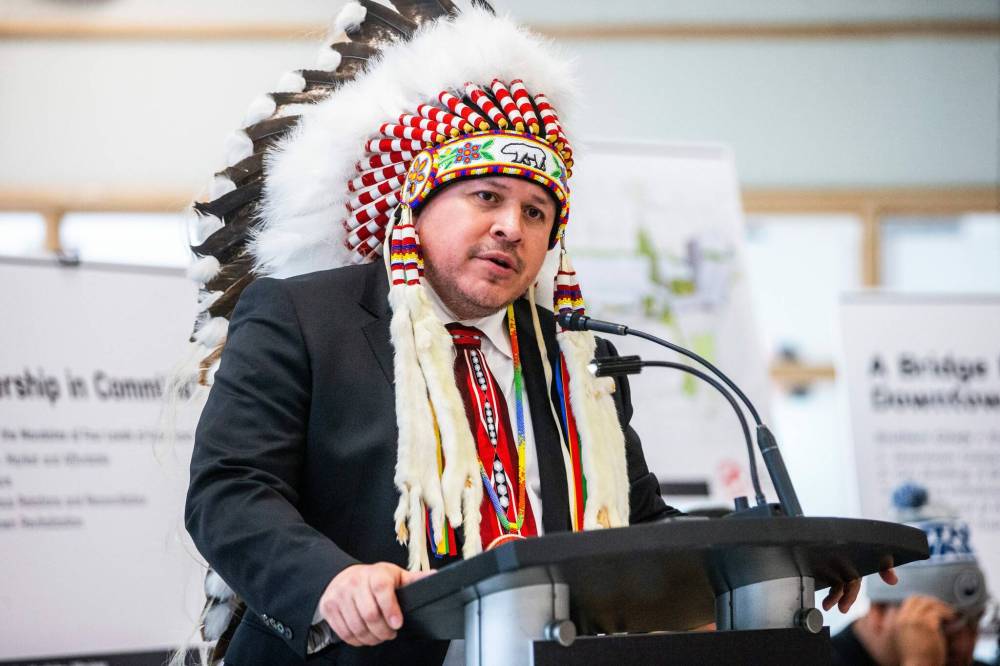Sourthern chiefs pick leader to reform health care
Advertisement
Read this article for free:
or
Already have an account? Log in here »
We need your support!
Local journalism needs your support!
As we navigate through unprecedented times, our journalists are working harder than ever to bring you the latest local updates to keep you safe and informed.
Now, more than ever, we need your support.
Starting at $15.99 plus taxes every four weeks you can access your Brandon Sun online and full access to all content as it appears on our website.
Subscribe Nowor call circulation directly at (204) 727-0527.
Your pledge helps to ensure we provide the news that matters most to your community!
To continue reading, please subscribe:
Add Brandon Sun access to your Free Press subscription for only an additional
$1 for the first 4 weeks*
*Your next subscription payment will increase by $1.00 and you will be charged $20.00 plus GST for four weeks. After four weeks, your payment will increase to $24.00 plus GST every four weeks.
Read unlimited articles for free today:
or
Already have an account? Log in here »
Hey there, time traveller!
This article was published 25/01/2024 (705 days ago), so information in it may no longer be current.
Karlene S. Debance has been named the Southern Chiefs’ Organization’s inaugural Chief Executive Officer for Health Transformation, a role which will see her work to reform health services to better serve Anishinaabe and Dakota people.
“I am ready and committed to making a difference where it matters most in the improvement of the lives and health and wellbeing of First Nations citizens and their families and communities,” Debance told the Sun.
Grand Chief of the SCO Jerry Daniels said in a press release on Jan. 10 that the organization was thrilled to announce Debance’s new position.

“There is an 11-year and growing gap in life expectancy between First Nations and non-First Nations people in Manitoba,” Daniels said. “We look forward to benefiting from the strengths this leader brings to the table.”
Statistics Canada backs up Daniels’ statement. Their website says that significant health gaps exist between Indigenous and non-Indigenous people in Canada, similar to the gaps between Indigenous and non-Indigenous people in countries like the United States, Australia and New Zealand.
The life expectancy for First Nations people in Canada is 72.5 years for males and 77.7 years for females, which are 8.9 and 9.6 years shorter, respectively, than for non-Indigenous people, Statistics Canada reports.
The creation of a Southern First Nations Health Authority will meet the health needs of the 34 SCO member nations, and Debance will ensure those needs are addressed in a holistic way, a press release from the SCO said. Debance will lead the creation and implementation of the health authority, which will be the first of it’s kind to focus on delivering and transforming health services specifically for the 34 southern Anishinaabe and Dakota nations the SCO represents, the release stated.
Debance is one of many dedicated people working to implement health transformation programs and projects at the SCO, said Chief Cornell McLean of the Lake Manitoba First Nation, located 265 kilometres northeast of Brandon. He specifically thanked Mona Bencharski, director of innovation and special projects for health transformation for taking on a leadership role before Debance was hired.
“I also thank all members of our Elders and Knowledge Keepers Committee, Gender-Based Violence Advisory Circle, as well as our Chiefs’ health Action Table for your ongoing dedication to transforming health for SCO member nations.”
Previously, Debance worked with the provincial government of Manitoba for 19 years, and was an assistant deputy minister with the Department of Intergovernmental Affairs.
“I worked on many key projects that benefited communities across Manitoba,” she said. Debance also has experience working in the nonprofit sector during the early part of her career. For the last three years, she worked with a not-for-profit organization working with nonprofit housing boards in affordable housing and property management sector.
“I believe there are many components that will serve me well in applying some of my knowledge of health transformation,” Debance said. “I’m really excited about this opportunity.”
A team has already done a lot of work on health transformation, and they’ve all got a lot of knowledge, Debance told the Sun.
“They’ve been working really hard on many projects and lots of different activities,” she said. “One of my first tasks … will be to do lots of learning, lots of listening, meeting with the staff … there’s also the elders and knowledge keepers table that I’m going to be meeting with and listening to what they have to say, and understanding their role.”
The health transformation team will rely on guidance and advice it gets from its community members, including elders and knowledge keepers. The elders and knowledge keepers provided the names Wicozani Hduha Mani: Walk with Health, and O-Nii-Gah-Neek Mino Ayawin: Leaders in Health for the work being done by SCO Health Transformation, Daniels said.
“This new health authority is an opportunity for First Nations to take back control of their own health and lay a foundation in a good way for future generations.”
The new health authority will work with the provincial government to align its priorities, but will also be working very closely with the chiefs and councils of southern Manitoba First Nations communities to find ways to transform health initiatives and the health system so that it’s better suited and adapted to First Nations access, Debance said.
“Lots of initiatives are underway right now. We’re continuing to negotiate a tripartite agreement in principle between the SCO, Manitoba and Canada. We’re working on health, human resource strategy to grow the workforce, which will involve training as well.”
The SCO represents 34 First Nations and more than 85,500 citizens in southern Manitoba.
» mleybourne@brandonsun.com
» X: @miraleybourne
